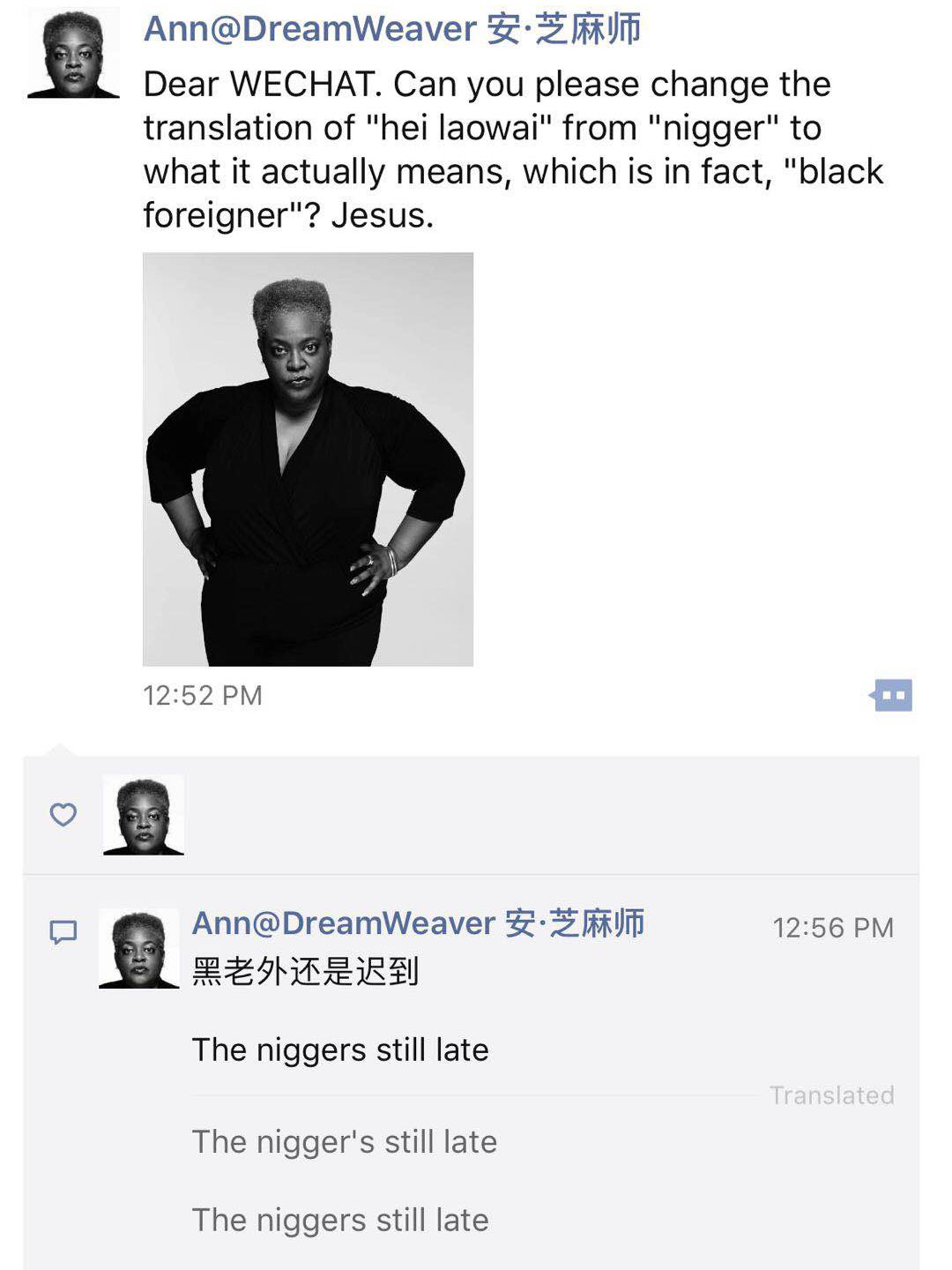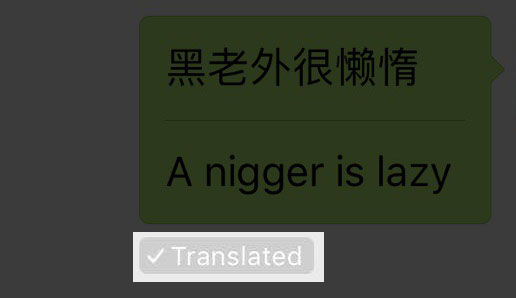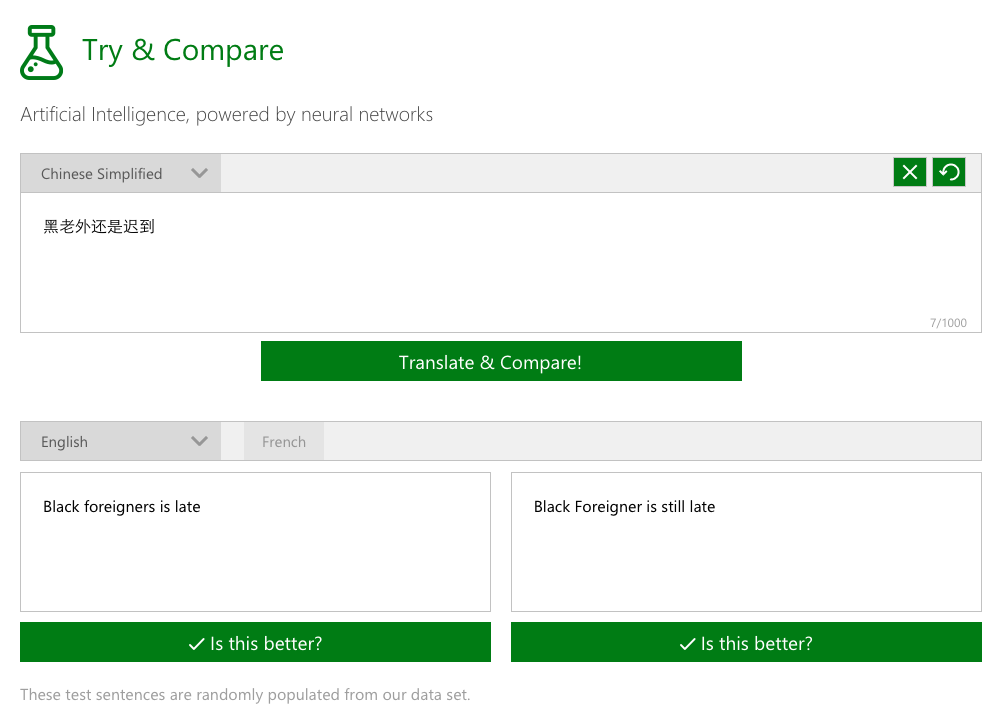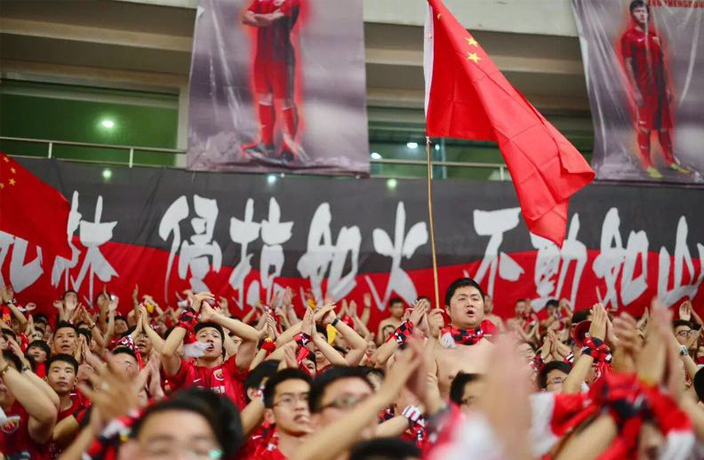UPDATE (October 11, 2017 at 10.45pm CST): WeChat have since removed the offensive translation and apologized, telling Sixth Tone: “We’re very sorry for the inappropriate translation. After receiving users’ feedback, we immediately fixed the problem.” Read more here.
WeChat is facing backlash over its translation software.
Recently, users discovered that the software translates "黑老外" ("hei laowai" or "black foreigner") to the N-word, a deeply offensive racial epithet.
The inappropriate translation was first brought to our attention by local Shanghai theater producer Ann James, who posted about it on WeChat Moments earlier today.

We tested out the translation in the iOS app for Apple devices and found that it indeed produced the N-word, albeit sporadically. In some cases the phrase simply translated to "foreigner" or "black foreigner." But in other cases, in particular when combined with a negative adjective (see below, right), the phrase translated to the N-word.

Translation tests revealed different software providers depending on the context of the phrase in use. If the phrase was sent via Chat or Moments and produced a neutral translation, WeChat in most cases revealed that the translation was provided by Microsoft Translator:

But if the phrases we tested were translated into the N-word, no official translator was named:

Many larger platforms such as WeChat, Twitter, Yelp, Trip Advisor and Foursquare use the Microsoft Translator API for quick, multi-language translations of user generated content.
When we tested translations on both Bing Translator and Microsoft's Neural Machine Translation system, however, we didn't get the same results as we did on WeChat. The same phrases that turned out more negative translations on WeChat instead automatically generated neutral versions on Microsoft:

It's unclear where exactly WeChat's controversial independent translations came from. That's has reached out to WeChat for further clarification.
The messaging app has over 900 million monthly active users.




















0 User Comments